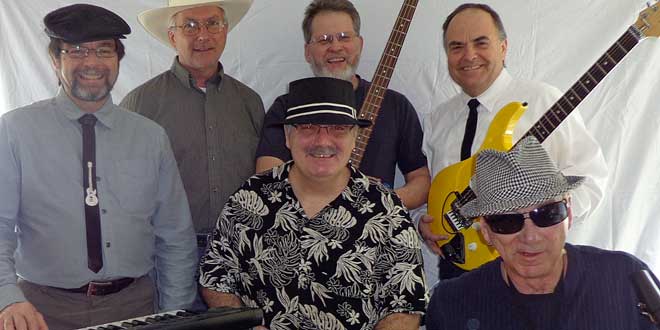MINDEMOYA—The numbers are hard to believe. According to Statistics Canada, there are over 7 million Canadians, children and adults living with chronic pain. That is pain that doesn’t go away after three months as opposed to acute pain which happens, for example, when you have surgery or break a leg. The Arthritis Alliance of Canada states that 4.6 million of these people live with osteoarthritis, a degenerative disease that results in the wearing away of the cartilage covering the ends of bones and one of over 100 types of arthritis. Another 272,000 Canadians live with rheumatoid arthritis, which can affect the entire body but is found most often in the small joints of the hands, feet, elbows, shoulders, neck, knees and hips.
In order to help people with arthritis understand their condition, the hospital in Mindemoya recently held a series of teach-ins, once every seven days for five weeks. These sessions are sponsored by the Arthritis Society and are presented by the Ontario Telemedicine Network (OTN) to many clients throughout Ontario at the same time. The OTN is an independent, not-for-profit organization that is funded by the Ontario government and delivers information on a variety of conditions. These sessions focussed on an explanation of exactly what arthritis is as well as on factors that affect the wellbeing of sufferers such as nutrition, intimacy, medications and physical activities. The OTN coordinator for this area is Ann Cranston and she, along with Mary Wilson and others who work in the hospital’s clinic, called to see if people were willing to attend the classes based on information submitted by family doctors.
The teleconference, held in the hospital boardroom, included class participants from Atikokan, Little Current, Parry Sound, Smooth Rock Falls, Sturgeon Falls, North Bay, Saint Charles, Fort Albany, Walden, as well as Mindemoya. As Ms. Wilson explained, “There is excitement in offering group sessions in our boardroom and you are connecting with a specialist fast. And we offer different programs with education and information on such topics as chronic obstructive pulmonary disease (COPD), heart failure and asthma.” As well, Stay Active, Stay Independent, Stay on Your Feet classes have been held with exercises for seniors to do with the goal of staying in one’s own home for a longer period of time.
The arthritis classes show participants how to understand and manage this condition and deal with the pain, fatigue and stress that comes with it while emphasizing that it is essential for people to see their healthcare provider for a proper diagnosis, referrals and treatment. The Arthritis Society literature also stresses that one must work closely with an arthritis healthcare team that may include a nurse practitioner, nurse, rheumatologist, occupational therapist, physiotherapist, social worker, pharmacist, dietitian and orthopedic surgeon as well as the family doctor. It is also imperative that arthritis sufferers understand the medications used for treatment and class members are given a consumer’s guide to medications that may include non-prescriptions for pain, non-steroidal anti-inflammatory drugs, disease-modifying anti-rheumatic drugs and biologics.
Class participants are also taught the importance of nutrition and exercise when dealing with arthritis as being overweight puts extra strain on weight-bearing joints that may be already compromised. Limits should be placed on foods high in fats, especially animal fats, sugar, alcohol and salt. Exercise should be done regularly and this class teaches movements that can be done without undue strain.
Those who participated in this teleconference were glad they came and spoke positively of the classes. Kathrine Robarts of Kagawong found the seminar very informative and said, “This is a very good way to educate many people at once from different towns and cities” while Deanna Benoit, also from Kagawong, thought the sessions were very beneficial for people with arthritis. Myrna Clark found the teleconference to be very enlightening while Carole Middaugh and Joan Ralph were thankful for the how to cope with pain class with Ms. Ralph saying, “I learned many ways of coping with the pain through meditation and exercises.”
The tutorials were also excellent for showing participants various ways of dealing with arthritis from day to day. Many of these items are low cost and include long handled shoe horns to get shoes on without having to bend down, tools for opening jars and roll-on lotions for feet and backs. Elastic shoelaces can be used as they stretch over the day as one’s feet swell and pipe insulation can be used to make a handle for a toothbrush of hairbrush. It is also important to have a bath mat in the shower or tub and dispensers for shampoo that attach to the wall.
The teleconference had much more information than can be written about here, but interest would probably result in another session as this method of delivering information is on the rise. If you are interested in attending an arthritis seminar or have an idea for another topic, contact Ms. Cranston, Ms. Wilson, or any of the other staff at the Mindemoya Medical Clinic. The number is 705-377-5371.




